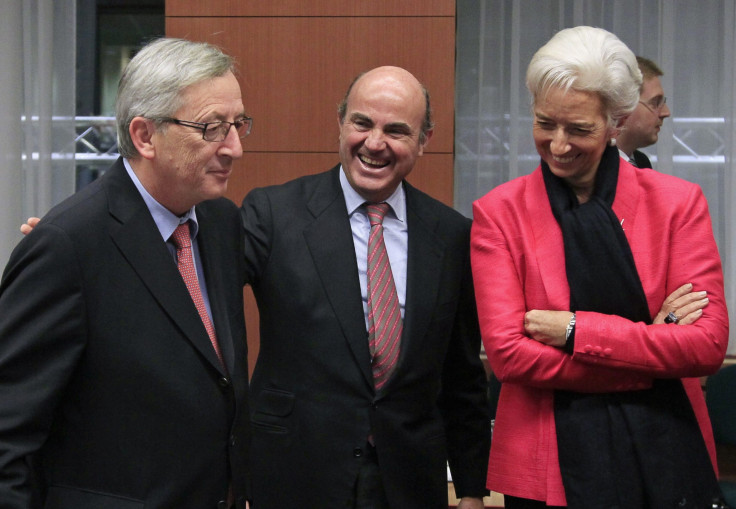Spain Begging Immigrants, Companies, Former Colonies, IMF For Cash - Anyone But Merkel

Do you have a few million dollars lying around just waiting to be put to good use? One million? How about $200,000?
If you answered “yes” to any of the questions above, then the debt-racked Spanish government would like a word with you.
Faced with an ever-worsening financial and fiscal crisis -- which is increasingly being marked with worrying social and political overtones -- the Kingdom of Spain is increasingly resorting to off-the-cuff ideas meant to somehow push against the national economy’s death spiral.
This week, the government announced two initiatives meant to attract foreign investment. First, there was the unveiling in various newspaper op-ed articles by the Secretary of State for Commerce Jaime García-Legaz that “in a few weeks” the government would propose legislation to give residency permits to foreign nationals who buy a home in Spain “over a specified price level,” noting €160,000 ($203,000 at current exchange rates) as a likely price point.
Then there was the report Sunday by Spanish business newspaper El Economista that the government’s Ministry of the Economy had recently expanded the push of its “Invest in Spain” program, which is essentially seeking to turn Spain into an overseas tax haven, allowing foreign multinationals like Morgan Stanley, Hewlett-Packard, Pepsi, Exxon, Starbucks, American Express, Toshiba and Bombardier to move some of their operations to Spain in exchange for massive tax breaks.
The Spanish government’s tax concessions, the paper noted, were being touted as more generous than those companies could receive by moving operations to the Netherlands or Luxembourg, countries known as paper mills for abusive tax avoidance schemes.
And it wasn’t just individuals and corporations the government was going hat-in-hand to ask for financing.
Also over the weekend, the King of Spain himself joined the prime minister at a diplomatic conference with the heads of various Latin American governments, asking those leaders to set up schemes that promote investment flows from the New World into the Old. King Juan Carlos even went to calling on old favors, noting how Spain had promoted a reverse scheme a decade ago, when it was various Latin American countries that were facing periods of financial instability.
Spain had "seen difficult situations emerge caused by the financial and economic crisis," the King said, according to the Associated Press, adding, "Our eyes turn to you; we need more Latin America."
That appearance by His Majesty followed earlier reports in high-end financial newspaper El Confidencial last week that Spain was considering requesting a bailout of its sovereign debt load from the International Monetary Fund, a strategy being floated by Economy Minister Luis de Guindos as an alternative to a European Union-financed rescue.
All the rumored and confirmed calls for financial aid point to the same reality: Spain’s economy is desperately broken. As the unemployment rate has rocketed past the 25 percent mark over the past few months, defaults on all kind of loans have increased to levels believed only earlier this year to represent “worst-case scenarios.” On Monday, the amount of delinquent credit held by Spanish banks was reported to reach €182.2, an astounding 10.71 percent of the total loan book held by the financial system and well over the €100 billion Spain received as emergency financing in July from its European partners.
But the bits and pieces also add up to a more understated reality -- that the master plan for dealing with the European situation isn’t working. Spain and presumably Italy were already presented with a way to access emergency help from the European Central Bank in August and September, when Bank President Mario Draghi introduced a new initialism to deal with Europe’s cash crunch, the Outright Monetary Transaction, or OMT. The OMT was supposed to be executed in order to bring sovereign bond yields down, allowing countries to keep borrowing their way out of their problems at a reasonable rate. But there was a catch: The Spanish government had to come to Brussels and request the program be implemented and, in the process, subject itself to intrusive inspections from European technocrats and possibly additional austerity measures.
Since then, Spain has essentially said “no, gracias,” leaving the resolution to the crisis in an existential limbo and allowing for rumors and announcements of various piecemeal efforts to come through. Spain, it seems, isn't too proud to beg. But at the same time, it is too proud to take the help that was offered.
© Copyright IBTimes 2025. All rights reserved.





















